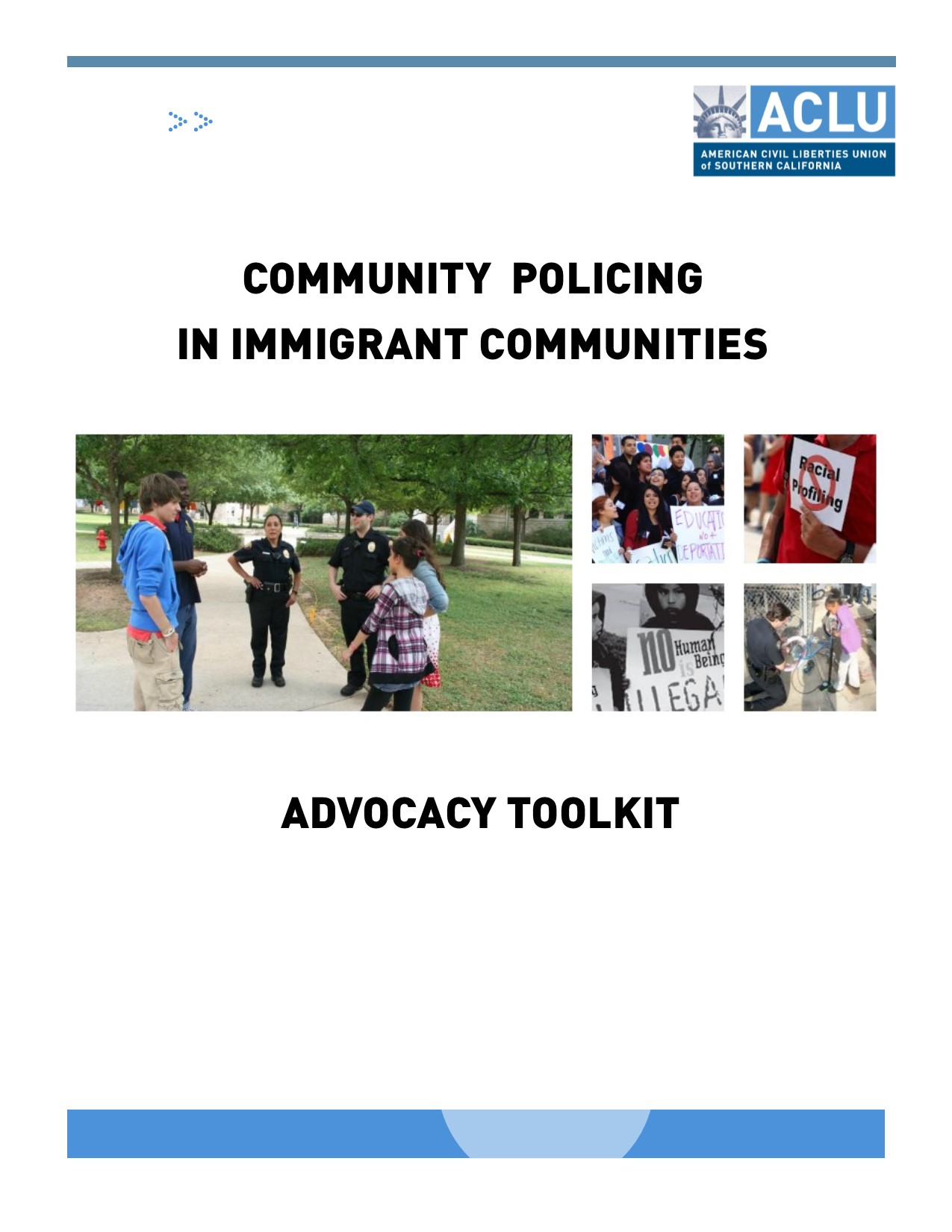Community Policing in Immigrant Communities
Community Policing in Immigrant Communities: Advocacy Toolkit is a resource for immigrant rights advocates to promote community policing, accountability and transparency with their local law enforcement agency.
Although immigrant communities have faced unprecedented numbers of deportations in recent years, thanks to the hard work of immigrant community leaders and advocates, the landscape has begun to shift.
Three states, and over 240 local governments, have partially restricted their involvement in the deportation machine.
To win these positive changes and moving forward, activists and advocates have employed several approaches, from dramatic protests and community forums, to pursuing legislation and filing lawsuits over wrongful detention and abuse of power. Throughout this process, advocating directly with local law enforcement has proven to be one useful tool to stop deportations.
Because of this, ACLU SoCal has prepared this toolkit in an effort to answer the following questions:
- What does “community policing” really mean?
- How can immigrant rights advocates and community leaders most effectively leverage this framework as they seek to advance equitable policies and practices that benefit the immigrant community at the local and state levels?
This toolkit aims to provide the information and materials necessary to advance the work of immigrant rights advocates, especially in isolated regions.
Community policing is one tool of many by which an organized community can advocate for the philosophies, principles, practices, and programs that give community members a voice in how their police department functions. Thus, community members can hold local law enforcement accountable to best serve the needs of the community.
In doing so, we hope that immigrant rights advocates will be able to move an affirmative strategy that promotes public safety, transparency and accountability, as well as discourage police involvement in evolving federal programs and informal practices that encourage local police to enforce immigration law due to the effect such programs and practices have on community trust and community policing.



